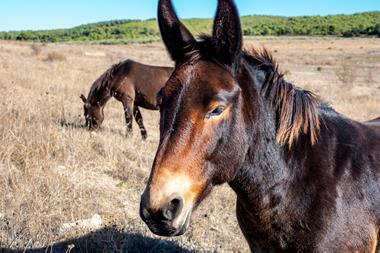Life in a start-up company can be anything but easy, as Lionel Milgrom discovered
Running a university start-up company can be like a kids’ playground...and as tough. Our spin-out company, PhotoBiotics, was born in 2001 (see Chemistry in Britain, July 2003, p36). By 2003 we had exhausted our seed funding and were running into trouble. With war looming, and investors running for cover as stock markets plummeted, we’d picked the worst moment to hit the money trail.
Also, too many biotechnology investments had failed to deliver. So, naturally, investors viewed us with suspicion, even though our results were impressive, and told us to come back when we had ’proved our technology’. But to do that, we needed more funding...Catch 22.
We were temporarily ’saved’ by some small-time biotech investors. Naturally, this gave them equity and therefore some measure of control over company direction. And it was here that my lessons in business began.
When our company started, the division of labour left me with no clear-cut role. Scientific decisions were taken on a group basis so that overall project supervision became somewhat redundant. Twenty years spent supervising (as opposed to doing) science left me at a bit of loose end. However, someone had to run the company. We couldn’t afford to hire a proper commercial manager so I reluctantly took on the role, with the grandiose title of managing director. Untrained for the job (I’d avoided admin most of my life), the last three and a half years have been hell. My biggest mistake was to admit to it.
Although I still had full input into the company’s scientific direction, it was made abundantly clear that my primary role was admin and that, until some future time when the company acquired proper financing, was how it would remain. Our erstwhile ’saviours’ had other ideas.
A disadvantage of nurturing spin-out companies in their academic spawning ground is that without incubator facilities, nascent enterprises compete for laboratory space with inexperienced graduates and post-graduates. Sometimes experiments were ruined through no fault of our own. Our investors didn’t see it that way, and felt their suggestions for re-setting scientific priorities went unheeded.
Also, investors are universally paranoid of academics running companies with no perceived business acumen. Understandable, perhaps; but unknown to me, they had made further investment conditional on my removal as managing director, and an experienced commercial manager being brought in.
Fine: after all, I hated the job, and to be able to hand over the reins was a blessed relief. But after years of loyal service, I could have at least been consulted in advance. Instead, the axe fell as a surprise during an ordinary board meeting - what is known in the trade, as a boardroom putsch.
I wasn’t exactly fired: more moved sideways into an (unpaid) consultancy role. Again, nothing wrong with that per se (apart from the loss of salary). After all, I would be doing what I loved best - science. What left the bad taste was the cowardly manner in which the change was executed - and the complete indifference exhibited by my colleagues. I now realise, such playground antics and lack of feeling are par for the course in business.
So what else have I learnt? First: believe nothing; question everything; trust no-one. Investors have the courage of sheep and the compassion of velociraptors. So, never demonstrate weakness. Second: it really is ’lonely at the top’, especially when people you have worked with for years turn out not to have an ounce of fellow feeling. Third: if spin-out company formation is to be the model of how universities sustain themselves into the future, then God help academic science. Investors are not interested in new science; only its potential rewards. Anything deemed ’unproductive’ will be allowed to go to the wall.
For those contemplating the university start-up route to realising their dreams of world-beating, lucrative science, let this be a warning. Meanwhile, I’ve had enough of roundabouts: perhaps I’ll go play on the swings for a while.
Lionel Milgrom is a porphyrin chemist, ex managing director of a biotech company and a freelance science writer












No comments yet